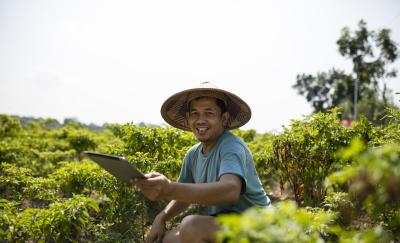Since the beginning of the Industrial Revolution, energy availability has been the driving force for economic development. For millennia, people relied on their own labor and that of animals for plowing, planting, irrigation, harvesting, milling and transport. As energy was limited, so was agricultural productivity and processing, keeping economic development stagnant. For hundreds of millions in sub-Saharan Africa (SSA), the lack of energy access has kept them in poverty by constraining their ability to improve their economic prospects. While basic energy access opportunities including lighting and clean cooking have improved the quality of life for many, these have not led to large gains in incomes and employment because the amounts of energy supplied are simply too small to generate much economic activity. Power grids don’t reach most rural areas of SSA, so the average amount of electricity consumed by residents is only enough to charge a phone and power a light bulb for a few hours a day. The small amount of energy these appliances demand does not provide the necessary incentives for energy suppliers to expand.
Even where access is available, power may not be affordable for many. Rural areas in SSA suffer from extreme energy poverty, even in comparison to the rest of the Global South. While 71 percent of urban people in SSA have access to electricity, just 25 percent of those in rural areas do.This has limited agricultural productivity and value extraction in the continent’s dominant employment sector, leading to extensive poverty. Much greater use of energy, particularly electricity from renewable sources for productive uses, will enhance productivity, revenue generation, and employment, doing much to reduce poverty in SSA countries. Cost reductions for critical distributed energy technologies, including solar cells and batteries, along with innovations in products, financing, and purchasing, could make this possible. All of this has led to conditions that make the adoption of productive uses of energy (PUE) in SSA more feasible. This paper explores PUE for irrigation, cold storage, and grain milling, and makes suggestions to accelerate their adoption.



